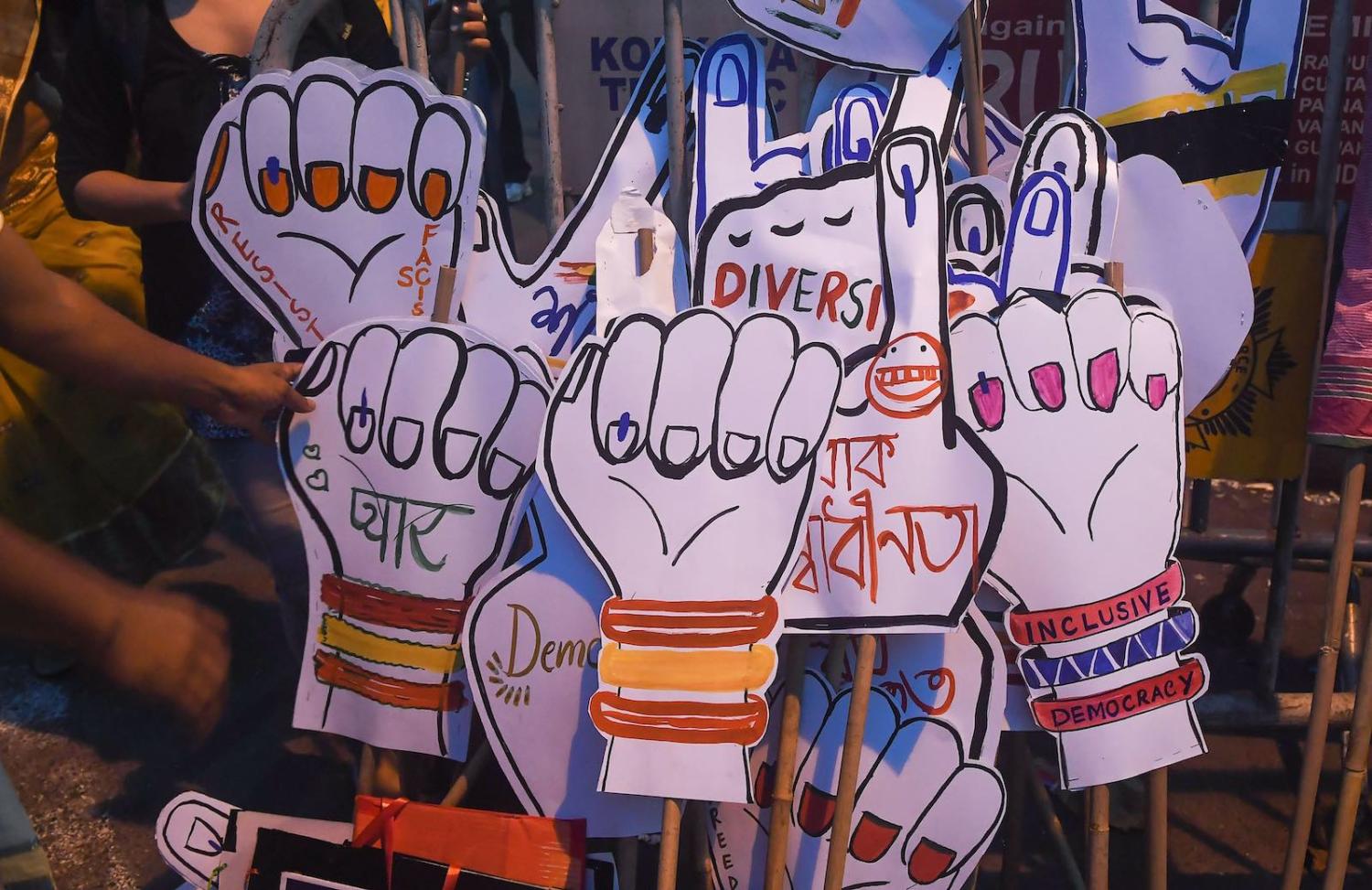As the mammoth task of elections in India continue up to a 19 May deadline, the nation’s election commission is seeking a full turnout of the population – including the often marginalised LGBTQI community. For the first time, transgender people have been anointed ambassadors to encourage those from sexual minority groups to exercise their consitutional right to vote.
While this rainbow wave is rolling over this Indian election, the reality is still challenging and complex for the country’s sexual minority population. For decades the community has been discriminated against, insulted and even forced into prostitution.
In September last year, India's top court quashed the old colonial-era law that previously crimalised homesexuality. The Supreme Court’s decision was hailed as a “beginning of a new era” ushering in social and political change. Yet in spite of the verdict, and efforts by the election commission, the LGBTQI population continues to suffer from discrimination and regressive attitudes.

Shree Gauri Sawant, a transgender woman who has been appointed as an election ambassador, tells me she is proud to be selected to encourage and motivate voters. But she feels strongly for the LGBTQI community, since they often have no access to medical care, are denied job opportunities, and there is no dedicated welfare board for the community. Simple requirements, such as obtaining an identify card, can turn out to be practically impossible, leaving participation in the elections as a distant dream.
While a rainbow wave is rolling over this Indian election, the reality is still challenging and complex for the country’s sexual minority population.
Sexual minorities in India are poorly represented. There are no official demographic figures for the LGBTQI population, although the government submitted figures to the Supreme Court in 2012 stating there are 2.5 million gay people in the country. This data was based on those individuals who self-declared to the Ministry of Health, yet the true number is far higher, given many Indians live in the closet due to fear of discrimination. N Butolia, secretary of the Election Commission of India, has said that a total of 39,703 transgender voters have registered under a third category to vote in these elections.
Deepak Raj says he was overwhelmed by the Supreme Court verdict decriminalising homosexuality, but for him, little has changed. Raj is unable to get a medical certificate to confirm his transgender status and help him to apply for a identity card to vote, and believes there are tens of thousands of people in the same situation, unable to participate in the coming election.
Professor Vidhu Verma, who specialises in the study of discrimination and exclusion at Jawaharlal Nehru University, said the widespread discrimination against sexual minorities is strongly ingrained as a social and religious issue. She said the LGBTQI community continues to suffer from a negative stigma and this will persist without basic laws that give them an identity, regardless of present efforts to enourage participation in the electoral process.
Political parties have been busy with campaign strategies to target the LGBTQI vote and win support with the promise of policies for their rights and better life. Yet this political window dressing will be seen more as a tactic in winning power unless backed by strong policies to ensure an inclusive society, where the sexual minority population in India obtain all rights from health care to education to equality.

